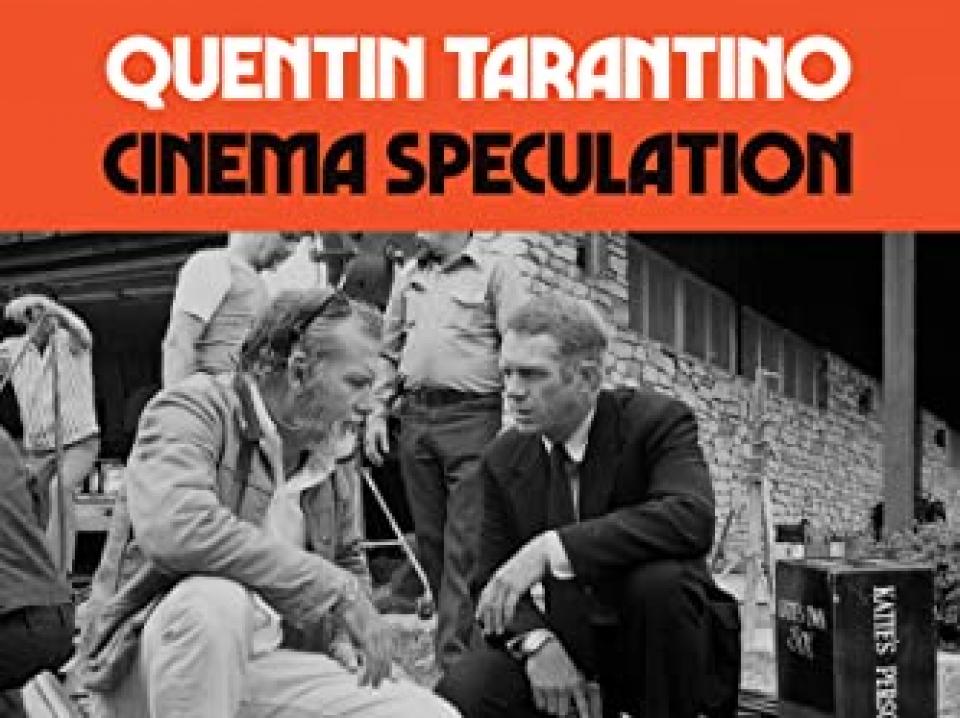Cinema Speculation by Quentin Tarantino
Published on 13th June 2023
It’s not exactly a stretch to say that Quentin Tarantino is not for everyone. His films aren’t and now, it turns out, his writing isn’t either. Peppering his prose with laughably unnecessary curse words will be a turn off for some (although this is more of an issue in the first half of the book than the second). Tarantino is also not a great stylist and occasionally butchers his sentences.
However, what Tarantino lacks in literary merit he more than makes up for in other elements of his book. For example, he gets access to some huge names in cinema history — Scorsese, Schrader and Walter Hill to name just a few. And uses this access as a springboard for some of his, as it were, cinema speculation. What if Brian De Palma had directed Taxi Driver? Why didn’t Scorsese and Columbia Pictures hew more closely to Schrader’s original script for Taxi Driver? Why was Rocky so successful? Interestingly, Tarantino’s answer to the last question is that after the overwhelmingly downbeat and negative endings to so many 70s films, audiences were craving a film with a feel-good finale.

Another delightful aspect of Tarantino’s writing is his incredible cattiness. He slags off or criticises so many people! According to Tarantino, Armand Assante made a career out of being “a poor man’s Pacino”, Don Siegel is an “old fart”, Paul Schrader “can’t write genre films”, Robert Kaylor is “a very untalented director” and I could go on. He also criticises Scorsese, Truffaut, Lee Marvin, Brian De Palma, film critics (in general) and Kenneth Turan (in particular). What makes these jibes charming rather than distasteful is that he will often (though not always) admonish someone briefly after praising them at length.
While accessible and good-humoured criticism of others is all well and good, the real jewel in Tarantino’s crown is his passion for cinema and particularly for championing films that he loves. For example, he makes a great case for John Boorman’s Deliverance as well as Sylvester Stallone’s Paradise Alley. Each chapter has as its title the name of a movie which Tarantino then uses as a jumping-off point to discuss the movie itself, his age when he saw it and its impact on or place in the broader world of cinema. He returns to certain directors, screenwriters and actors repeatedly and his discussion of Schrader’s and Scorsese’s continuous early-career homages to The Searchers is fascinating. This book will be an accessible and very enjoyable read for anyone with an interest in film history and theory, as long, of course, as they’re not immune to the charms of Quentin Tarantino.
Reserve a copy of Cinema Speculation by Quentin Tarantino.
Review by Peadar from our I.T. team.